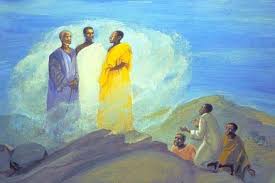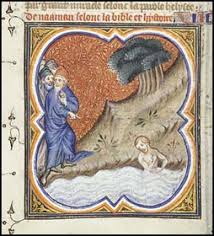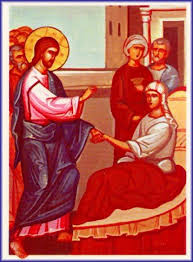March 12, 2009
Exodus 20:1-17; Psalm 19
1 Corinthians 1:18-25; John 2:13-22
I’m going to start this week’s sermon where I left off last week:
Most people in the world have the deck stacked against them. This is not news to us here in Brockton. Many people in the world don’t get enough to eat, don’t have a decent place to live, don’t have good medical care, don’t have the opportunity to earn a living. What does that have to do with us?
What does it mean, then, to be a follower of Jesus?
Let’s look again at these Millennium Development Goals:
Universal Education
Gender Equality
Child Health
Maternal Health
Combat HIV/AIDS
Environmental Sustainability
Global Partnership
This is what I said about them last week:
These were set by the United Nations, and have become a benchmark for relief and development workers the world over. My problem with them is that they have been used by all sorts of people – especially church people – to focus our attention and efforts on the suffering of our neighbors far away, at the expense, I believe, of our attempts to create a just society here, to change the structures of our neighborhood, to improve the lives of our neighbors.
Yet look again at this list: what would it mean to work toward the millennium development goals here, in Brockton, in this neighborhood we so hopefully call “PleasantGreen?” Read this list again, think of Brockton. Take up your cross, Jesus said, and follow me.
It does not always happen that my sermons are on the cutting edge of “what’s happening now” in the Episcopal Church, but this week I was very surprised to read these words from the Presiding Bishop:
The Episcopal Church focus on the Millennium Development Goals has raised consciousness in our own faith communities and the broader culture about the need to address abject poverty in developing nations. This work has increased mission fervor and deepened spirituality. We need to bring the same passion, organization, and accountability to our work on domestic poverty – in the poorest regions of the United States. Social statistics and the conditions of life are quite similar in the poorest areas, both in the U.S. and abroad, but the MDGs are addressed solely to poverty in the developing world. We need to use both lenses (international and domestic; distance and near vision) to see the least among us and around us.
On Friday, the Presiding Bishop released a report on how the Episcopal Church can take seriously – and seriously support – the kind of work we are doing right here in Brockton.
The group that met to develop this report came up with another list, the Eleven Essentials of Justice:
Employment
Affordable quality childcare
Education
Healthcare
A just immigration policy
Cultural affirmation
Equal protection under the law
Economic opportunity
A healthy environment
Housing
It also seems like the Episcopal Church is getting ready to re-organize its institutional life to make some changes in who we are as the people of God, living and working in communities like this – who we are as the people of God, as agents of social transformation – who we are as the people of God who can make a difference in communities like this and in the lives of the people – us -- who live here.
… the Episcopal Church commits to participating in combating domestic poverty by revitalizing our often under-utilized buildings in rural, suburban and urban areas so that we may minister with the marginalized and become transformational communities working to eradicate domestic poverty.
… In addition to the demographic tools used currently for church growth and outreach, we will commit to partnering with local groups working to alleviate poverty.
We ask a reassessment of our budgets to be aligned with the gospel mandate of addressing domestic poverty.
Domestic poverty is multifaceted … We are called as Christians to stand with the poor and fight for the dignity of all people. Our presence in many poor communities is predicted by the existence of Episcopal Church buildings, many in a state of disrepair or indebtedness. We believe that these buildings are a blessing to be used for the people of the community.
Which brings us to our gospel for today: Jesus threw the money changers out of the Temple because they were not living up to the way God said people should live. They were selling short. They were squandering the resources of God’s creation, resources that were intended to be open and free for everyone. The money changers were trying to fulfill the law by getting around a difficult situation: no one wanted to use dirty Roman money to buy the animals they would sacrifice in the Temple – sacrifices they piously wanted to make to repent for their sins and ask God’s forgiveness. So the money changers took dirty Roman money and gave them Temple money, so the people could buy their sacrificial offerings.
What angered Jesus was how people could take the great, powerful, comprehensive understanding of the law as the way to live out love of God and love of neighbor – to take the law based on those 10 commandments Moses received – and reduce it to an exchange rate. Jesus is going to Wall Street, and pulling the power cords on the trading floor, exposing sub-prime mortgage rates as crimes not only against the poor people who were stuck with them but as crimes against God.
What we are doing here is what Jesus would have us do. This house of prayer is also a house of bread. A house of hope. A house of community and friendship. How timely that the rest of the Episcopal Church is catching up with what God has been calling us to do and to be.











.jpg)
.jpg)







.jpg)
